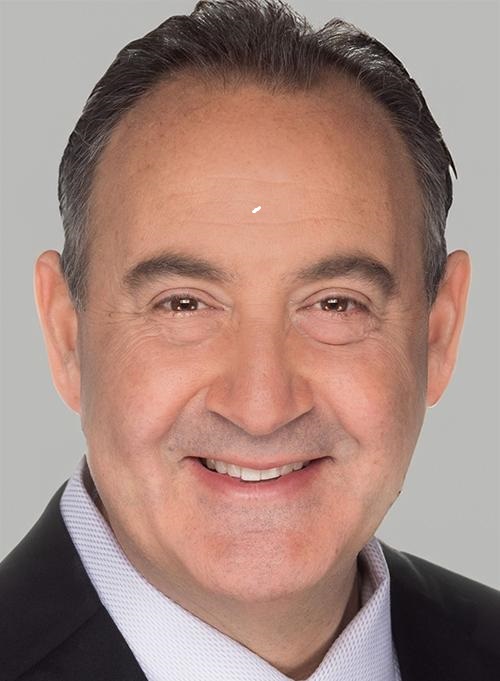Program is open to providers that exclusively offer telehealth services, and those providers that offer the telehealth services to other hospitals
In another sign that telehealth is now an established presence in the healthcare marketplace, The Joint Commission recently implemented a new Telehealth Accreditation Program. The initiative, which took effect on July 1, 2024, aims to provide “updated, streamlined standards” enabling “safe, high-quality” delivery of telehealth services to patients, according to a press release. The organization announced the program in April.
Dark Daily has regularly commented on the importance for clinical laboratories to recognize this trend and add the necessary services to meet the expectations and needs of telehealth/virtual doctor visits where the physician orders medical laboratory tests for the patient.
“The use of telehealth in the United States increased 154% during early stages of the COVID-19 pandemic and stabilized at levels 38 times higher than levels in 2019,” said Joint Commission President and CEO Jonathan B. Perlin, MD, PhD, in the press release.
“As telehealth continues to evolve, it was imperative to create a new accreditation program to provide a framework to support the integrity of patient safety regardless of the care setting,” he added.
The new program replaces current telehealth offerings in the organization’s Ambulatory Health Care and Behavioral Health Care and Human Services accreditation programs, The Joint Commission said in the press release.
The accrediting organization is reacting to market demand. Patient and doctor acceptance of virtual doctor visits and telehealth consults is now an established fact.

[PHOTO OF PERLIN HERE]
“Our new Telehealth Accreditation Program helps organizations standardize care and reduce risk so that all patients, including those obtaining services remotely, receive the safest, highest-quality care with outcomes consistent with traditional settings,” said Jonathan B. Perlin, MD, PhD (above), President/CEO, The Joint Commission, in a press release. Clinical laboratory accreditation nationwide is also handled by the not-for-profit organization. (Photo copyright: International Hospital Federation.)
Eligibility
The Joint Commission describes itself as “the nation’s oldest and largest standards-setting and accrediting body in healthcare.” The not-for-profit organization certifies more than 22,000 healthcare providers in the US, according to its website, including hospitals and medical laboratories. Its evaluations are based on surveys in which qualified experts conduct inspections of the facilities to ensure compliance with patient safety and quality standards.
Accreditation is not mandatory, however many states have licensing, certification, or contracting requirements that mandate accreditation by The Joint Commission or other accrediting bodies.
The program is open to providers that exclusively offer healthcare services “via telehealth or remote patient monitoring, with no in-person visits or encounters,” according to The Joint Commission website. This can include organizations that provide:
- Primary care, specialty care, or urgent care,
- Medical or behavioral consultation,
- Remote patient monitoring, and
- TeleICU, telestroke, telepsychiatry, or teleimaging services to hospitals.
Hospitals or other healthcare providers can also apply if they have contracts to offer “care, treatment, and services via telehealth to another organization’s patients,” The Joint Commission states. Examples include acute care or psychiatric hospitals that provide telehealth services to other facilities. In this case, the hospitals can obtain telehealth accreditation for the contracted services while maintaining their current accreditation for services provided onsite.
Requirements for Certification
The requirements for accreditation are similar to those in other Joint Commission programs, the organization says. This includes “requirements for information management, leadership, medication management, patient identification, documentation, and credentialing and privileging.”
In addition, it includes requirements specific to telehealth. For example, emergency management requirements have been streamlined to account for services provided remotely. It also contains standards related to telehealth equipment as well as provider and patient education about use of the technology.
“Additionally, the program’s standards may be filtered based on the telehealth modality or service provided,” the organization’s website notes.
Other Accrediting Organizations
The Joint Commission is not the only organization that offers telehealth accreditation or certification. The Utilization Review Accreditation Commission (URAC) provides accreditation programs for telehealth and remote patient monitoring, as well as a certification program for telehealth support services.
The telehealth accreditation program consists of three modules accounting for different forms of delivery:
- Consumer-to-provider (patient initiates services).
- Provider-to-consumer (healthcare provider initiates services).
- Provider-to-provider (one provider offers services such as consultation to another provider).
The accreditation process takes up to four months, URAC says.
The Accreditation Commission for Health Care (ACHC) offers what it describes as a telehealth “Distinction” for certain kinds of healthcare providers that it has accredited, including:
- Ambulatory Care,
- Behavioral Health,
- Home Care,
- Home Health,
- Hospice,
- Palliative Care, and
- Renal Dialysis.
Additionally, in April 2022, ACHC announced a telehealth certification program open to “any healthcare provider or organization that delivers health-related services via electronic information and telecommunication technologies,” regardless of whether they are accredited, according to a press release.
“The pandemic really pushed healthcare providers to adopt and grow telehealth services to maintain access for patients and, as a result, many of our clients were seeking ways to optimize this offering in the context of providing quality services,” said program director Teresa Hoosier, RN, in the press release. “ACHC Telehealth Certification establishes national standards. It promotes best practices for digital healthcare services. Certification confirms quality, safety, and consistency—strengthening trust in an organization and assuring patients that they are receiving the best care possible.”
This development is a reminder that clinical laboratory managers need a consumer/patient focused strategy and operational capability to collect specimens and provide medical laboratory tests for telehealth visits when the doctors order tests. It confirms that the trend of consumers/patients using remote healthcare is real, robust, and has legs.
—Stephen Beale
Related Information:
The Joint Commission Launches Telehealth Accreditation
Joint Commission Launches New Telehealth Stamp of Approval for Virtual Healthcare Providers
The Joint Commission Announces New Accreditation Program for Telehealth Providers
Joint Commission Intros New Telehealth Accreditation Program
The Joint Commission Unveils New Telehealth Accreditation Program


